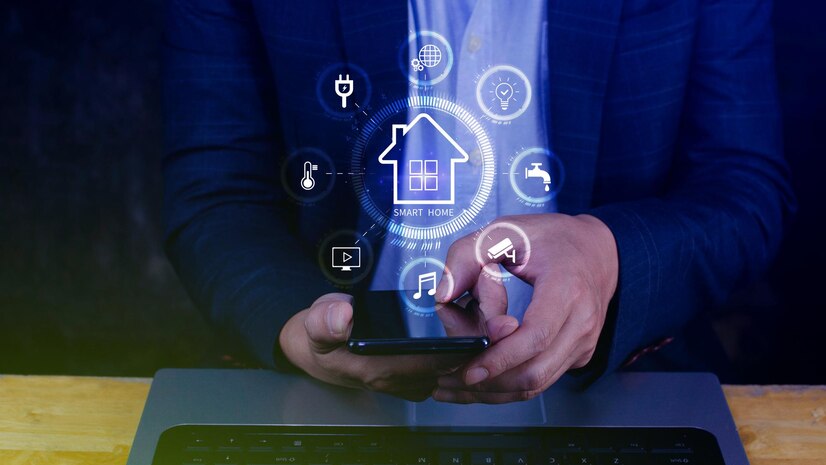In today’s digital age, smart home systems have revolutionized the way we manage and interact with our living spaces. From automated lighting and climate control to remote security monitoring and energy management, smart home technology Read More
One of the most popular features of smart home systems is automated lighting and climate control. With smart lighting solutions, homeowners can remotely control lights, adjust brightness levels, and create custom lighting schedules using smartphone apps or voice commands. Smart thermostats, on the other hand, allow users to regulate indoor temperatures, set heating and cooling schedules, and monitor energy usage in real-time. By automating lighting and climate control, homeowners can improve energy efficiency, reduce utility costs, and create personalized environments tailored to their preferences. Whether it’s dimming the lights for movie night or adjusting the thermostat while away on vacation, smart home technology puts control at your fingertips, wherever you are. Smart home systems also offer advanced security features that provide peace of mind and protection against intruders. With smart security cameras, motion sensors, and doorbell cameras, homeowners can monitor their property in real-time and receive instant alerts to their smartphones in case of suspicious activity or unauthorized access. In addition to surveillance, smart home security systems often include remote access control features that allow users to lock and unlock doors, arm and disarm alarms, and even communicate with visitors from anywhere with an internet connection. These integrated security solutions offer comprehensive protection and flexibility, empowering homeowners to keep their homes and loved ones safe, even when they’re away. Another key benefit of smart home systems is their ability to optimize energy management and promote sustainability. Smart energy monitors and meters provide real-time insights into energy consumption, allowing homeowners to identify energy-intensive appliances, track usage patterns, and make informed decisions to reduce waste and lower utility bills. By integrating smart thermostats, lighting controls, and appliance modules, homeowners can implement energy-saving strategies such as scheduling, automation, and smart home automation systems also enable integration with renewable energy sources like solar panels and battery storage systems, allowing homeowners to maximize their energy independence and reduce their carbon footprint. One of the most compelling aspects of smart home systems is their ability to seamlessly integrate with other smart devices and platforms, creating a unified ecosystem that enhances convenience and control. Whether it’s voice assistants like Amazon Alexa or Google Assistant, smart home hubs like Samsung SmartThings or Apple HomeKit, or third-party apps and services, smart home technology offers unparalleled interoperability and flexibility. With integrated control interfaces and interoperable protocols like Zigbee and Z-Wave, homeowners can manage multiple smart devices and systems from a single app or interface, eliminating the need for separate controllers or apps. This seamless integration simplifies setup, operation, and troubleshooting, ensuring a user-friendly and cohesive smart home experience. Conclusion: Smart home systems are revolutionizing home management by leveraging technology to automate, optimize, and enhance everyday tasks and routines. Whether it’s controlling lighting and climate, monitoring security and surveillance, managing energy usage and efficiency, or integrating devices and platforms, smart home technology offers a wide range of benefits that make homes safer, more efficient, and more comfortable. As the adoption of smart home systems continues to grow, the future of home management looks brighter than ever, with technology empowering homeowners to create smarter, more connected living spaces that adapt to their needs and preferences.
Smart Home Systems: Enhancing Home Management through Technology
In today’s digital age, smart home systems have revolutionized the way we manage and interact with our living spaces. From automated lighting and climate control to remote security monitoring and energy management, smart home technology Read More





